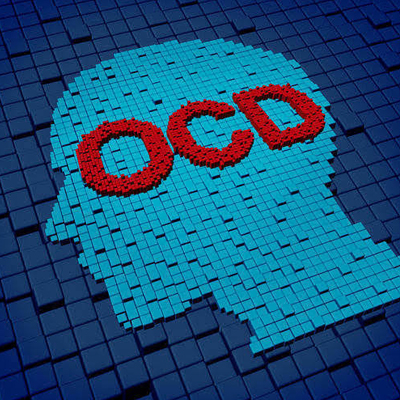Obsessions and Compulsions

Obsessions are intrusive thoughts or ideas that come into people's minds when they do not want them to.
They can be distracting and distressing. Compulsions are things that people feel they have to do, even when they do not want to - for example repeatedly checking the light is switched off - and they feel frustrated or worried unless they can finish them. Both obsessions and compulsions can be an indication of deep-seated anxiety.
Many children have mild obsessions and compulsions at some time, for example having to organise their toys in a special way, or saying good night a certain number of times. This is normal and may be the result of anxiety due to stress or life changes such as a new sibling or starting school.
But sometimes it is just too difficult for a child or young person to face their feelings and their mind will take over, so they become preoccupied with a thought, idea or action rather than dealing with the underlying feeling. They may feel they have to do certain actions otherwise bad things will happen to them.
Extreme obsessions and compulsions cause a lot of distress and worry to the person and their family, and can affect all areas of their lives. In severe cases, a diagnosis of obsessive-compulsive disorder might be made. If you are concerned that your child is obsessive or compulsive, professional help should be sought.
Symptoms of OCD in a child?Each child may have different symptoms. These are the most common symptoms:
- An extreme obsession with dirt or germs.
- Repeated doubts, such as whether or not the door is locked.
- Interfering thoughts about violence, hurting or killing someone, or harming oneself.
- Long periods of time spent touching things, counting, and thinking about numbers and sequences.
- Preoccupation with order, symmetry, or exactness.
- Ongoing thoughts about doing offensive sexual acts or forbidden, taboo behaviours.
- Troubled by thoughts that are against personal religious beliefs.
- A great need to know or remember things that may be very minor.
- Too much attention to detail.
- Too much worrying about something bad occurring.
- Aggressive thoughts, urges, or behaviours.
Compulsive behaviours are the repetitive rituals used to ease anxiety caused by the obsessions. They can be excessive, disruptive, and time-consuming. They may interfere with daily activities and relationships. They may include:
- Repeated hand washing (often 100 or more times a day).
- Checking and rechecking many times, such as making sure that a door is locked.
- Following firm rules of order, such as putting on clothes in the very same order each day.
- Hoarding objects.
- Counting and recounting a lot.
- Grouping objects or putting things in a certain order.
- Repeating words spoken by oneself or others.
- Asking the same questions again and again.
- Repeating sounds, words, numbers, or music to oneself.